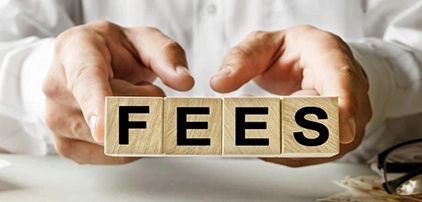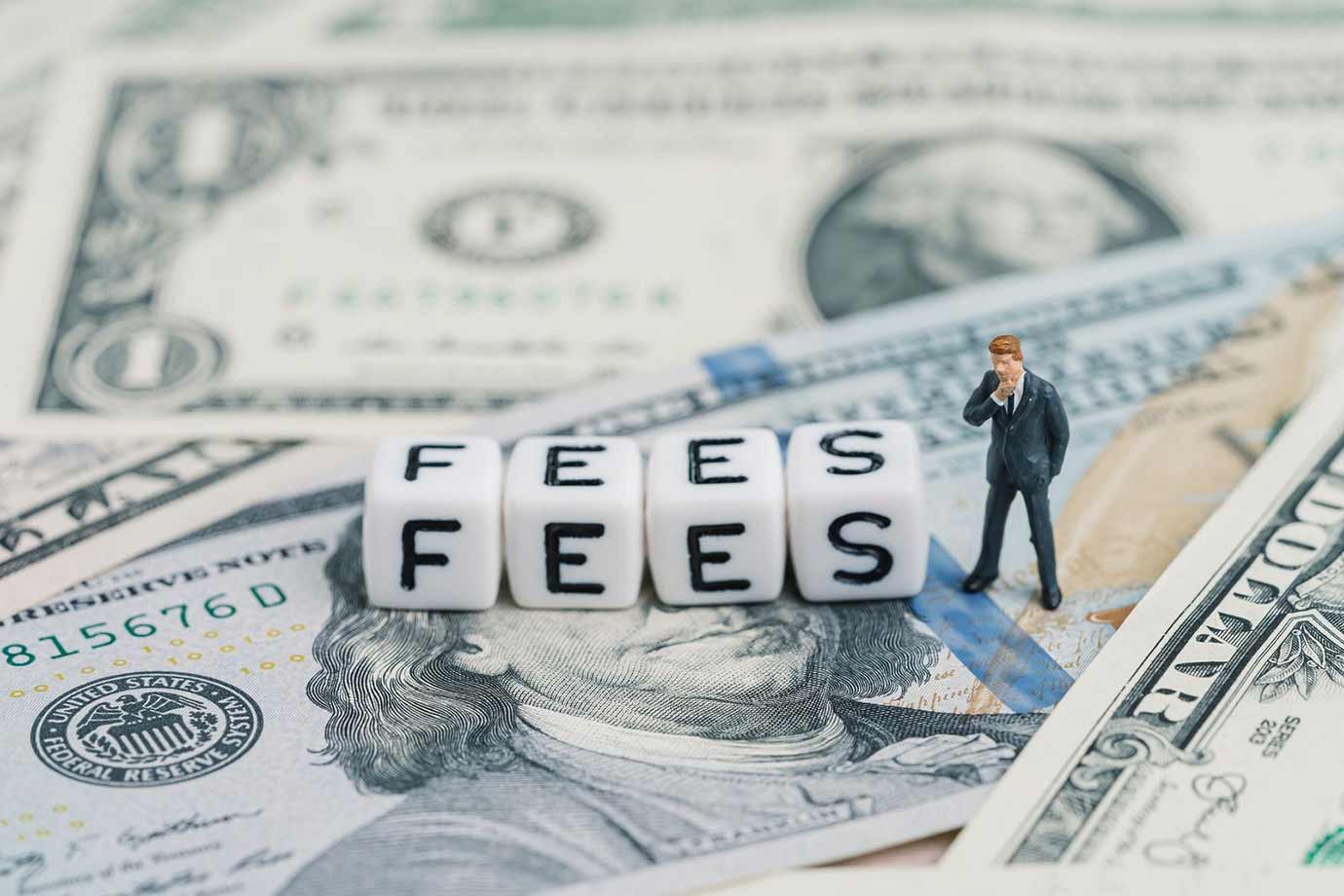On This Page:
Can You Get Overdraft Fees Back?
Who Should Not Bother Asking for Refunds?
How to Get Overdraft Fees Refunded Quickly?

Learn more about how to get overdraft fees refunded
- No impact on your credit scores
- Only verified financial information
- Fast funding in one business day
Managing your money can feel like sailing through rough waters, with surprises popping up to tip your budget upside down. One money storm that surprises many consumers is the dreaded overdraft fee. Your bank charges you when your account dips below $0. This fee adds up fast and makes a bad situation worse. But there’s a bright side: you can get some of those fees back if you ask for a refund.
Many banks allow customers to request refunds for overdraft fees, especially if unique circumstances lead to them. Knowing your rights and how to ask can significantly increase your chances of getting your money back. Let’s find out how you can do this.
Key takeaways:
- The overdraft fees are penalties charged by banks when you spend more money than you have in your bank account balance.
- The average overdraft fee is $35 but can range anywhere from $10 to $40, according to the Federal Deposit Insurance Corporation.
- You can waive overdraft fees if you discuss the details with your representative and prove unfair charges.
- To avoid overdraft fees in the future, you can link an additional account to your checking account.
What is an Overdraft Fee?
An overdraft fee is a penalty for spending more money than you have in your account. It happens when you buy something but don’t have enough funds to cover the item’s cost. The bank deposits the missing sum as a loan and charges you a fee for it.
Overdraft fees can be challenging expenses. If you aren’t careful, they can add up fast. You should repay any overdraft fees as soon as possible before they are sent to collections or your account is closed entirely. Luckily, there are some ways to address them quickly.
What is Overdraft Protection?
Overdraft protection is a service that helps you avoid overdraft fees. There are some options for this matter. The main one is connecting your other savings or checking accounts to the current one. So if you spend more money than what’s chilling in your balance, your bank will just take some funds from your savings to fill in the gap. However, it is only possible if your savings have enough green.
While you might be charged for each money transfer, it’s usually cheaper than standard overdraft fees. Some banks don’t charge for this protection setup, and others don’t apply a fee for moving cash between savings and checking.
You can also try other kinds of overdraft protection, like hooking up your account with a credit card or line of credit. Some financial institutions offer protection where they cover you if you overspend but then bill you for it later. The monthly fees are usually lower than potential overdraft fees, but it depends on your bank.
However, the overdraft protection may have a significant downside like incurring interest on transferred funds from savings. This interest rate may vary by lender and state. You are advised to consult your lender and be entirely informed about the consequences.
Can You Get Overdraft Fees Back?
Some banks might make an overdraft fee refund if you call customer service and explain your situation, especially if you don’t overdraw too often and have been loyal. A few banks also offer strategies on how you can get overdraft fees waived or how to reduce it.
Wells Fargo has something called Overdraft Rewind. They’ll waive the overdraft fee if you deposit enough money by 9 AM the following day to cover the amount you overdrawn. It works automatically if you have direct deposit set up.
Bank of America has Balance Connect, where you can link up to 5 other accounts to transfer money from to avoid overdraft fees. It could be another checking account, savings account, credit card, line of credit, etc.
Huntington Bank also tries to reduce the overdraft fee. If you overdraw $50 or less, it’s covered by their $50 Safety Zone, which means no overdraft fee. Plus, there is no overdraft fee if you deposit within 24 hours to fix it.
As you can see, banks are trying different things to help customers avoid overdraft fees. It doesn’t hurt to ask them about your options if you overdraw.
Who Should Not Bother Asking for Refunds?
Banks can be heartless about overdraft fees when it happens a lot, even if you need that cash for rent or something. They’ll say it’s account mismanagement if you need more to cover purchases. Frequent overdrafts are the common situations when you shouldn’t request this kind of refund.
Anyway, not much use pleading for refunds if you deliberately spend money you don’t have just because you want it. The bank will tell you that it’s your fault. You must be smart with your funds as best you can. Banks care about themselves first and will only cut you slack if your overdrafts aren’t your own doing.
How to Get Overdraft Fees Refunded Quickly?
Overdraft fees can hurt your budget. However, you can get them refunded if you know how the system works. Here are several tips and tricks for doing so quickly.
Contact your bank representative
Explain to your bank manager what happened—maybe you had a surprise bill or a check that bounced. Tell them straight up where things went wrong. If you’re honest about what happened and politely ask, they’ll probably work with you on this overdraft fee. Talking to the bank can be challenging but worth a shot. The worst they can do is say no. And getting that cash back could make a difference.
Use correct discussion strategies
You must have a plan when talking to banks about getting back unfair overdraft fees. First, get all your statements, transaction details, and any information about the bank fees. Read up attentively on how the banks charge overdraft fees. Know your account terms backward and forwards. Then, explain why the overdraft fee isn’t correct. If money was tight cause, you lost a job or something, say it. If the bank messed up somehow, spell it out. Make them see getting your cash back is the only fair thing to do.
Getting angry or flustered won’t help, but being prepared will. Just lay the facts straight, stick to your guns, and don’t back down. You’ll keep more of your hard-earned money with a bit of luck and some backbone.
Try alternatives if your bank refuses
Sometimes banks can be stubborn when they refuse to make an OD grace fee refund. If talking to the manager doesn’t shake this overdraft fee loose, it’s time to take your business elsewhere. Switching banks can be a headache, but you have nothing to lose if your current bank keeps shorting you with lousy service and petty fees. Shop around a little and find one that treats you right.
Read the fine print so you know exactly what you’re signing up for, and make sure there are enough ATMs and branches in your area. Although it is time-consuming, a few hours of work could save you from years of frustration.
How to Avoid Overdraft Fees in the Future?
Here are some tips on how to get rid of overdraft fees down the road so you can handle bills and not stress.
Monitor your checking account balance
The overdraft fee kicks in when you spend more money than you have in your bank account, making the balance harmful. By staying on top of your balance, you know how much cash you have to work with and can catch issues before they get out of hand.
Doing that also lets you quickly spot anything strange, like surprise charges or mistakes, so you can deal with them as soon as they appear. Whether it’s an automatic payment you spaced on fraud or just miscalculated your budget, watching your balance closely means you can tackle those problems as soon as possible.
Many banks have strategies, such as text or email alerts, that they can send to give you a heads-up when your bank account gets low. Taking them up on those alerts gives you an extra safeguard. It tells you to examine your spending and make changes if necessary.
Maintain a buffer in your bank account
Extra cash in your checking account can come in handy when surprise expenses pop up or if your paycheck is less than usual in one month. While keeping a buffer isn’t always possible, it’s a good idea to set aside money when capable. Even a couple hundred dollars can help cover expenses like daily purchases, car repairs, or medical bills you didn’t see coming.
What works for most Americans is putting a small portion of each paycheck into a separate savings account. Try to keep enough in there to cover a few weeks of normal costs, such as rent, groceries, and gas.
You can also have part of each deposit automatically transferred into a high-yield savings account. The interest rates are higher, so your money grows more over time, even though it’s not a huge difference. Every bit counts when you’re saving up for emergencies! The money is still easy to access if you need it, too.
Choose overdraft protection options
Banks offer overdraft protection to help people avoid going into the red and incurring fees. This overdraft protection links your checking account to another one, like a savings account or a credit card. If your balance is tapped out when you buy something, money is moved over from the linked account to cover it. You can also choose another form of protection where a bank covers these expenses for a nominal monthly fee.
Rely on banks with no overdraft fees
Banks that don’t charge overdraft fees’ cost are the best way to avoid those annoying extra charges. Lately, more people have realized that overdraft fees are a problem, and new laws like the Junk Fee Prevention Act are trying to stop banks from charging excessive fees. The goal is to protect customers from shady practices and ridiculous overdraft charges.
Also, more banks are completely eliminating or lowering overdraft fees as they see how much they hurt their customers. All this suggests that it will most likely not be very difficult for you to find another bank with more favorable conditions regarding overdraft fees.
Bottom Line – Can You Get Overdraft Fees Waived
Banks can totally ding you with expensive fees called overdrafts when you spend more money than you actually have in your account. Some banks may charge up to $40. You can sometimes get those fees back if you ask nicely. Traditional financial institutions offer services called overdraft protection that links your accounts or gives you a little credit cushion to avoid the fees. And if you don’t have that set up, you can still get your money back by talking to someone at the bank, showing them records of the charges or trying another method if the first rep says no.
Now, don’t go thinking you can get away with overdrafting all the time! If you’re just being careless with your money, the bank probably won’t give you endless refunds. But an occasional slip-up happens to everyone. As long as you keep an eye on your balance, keep some wiggle room, or sign up for overdraft protection you should be able to dodge most fees.
Learn more:
- Can I Open A Bank Account With Bad Credit?
- Understanding Interest Rates: Key Concepts Every Consumer Should Know
- What Is An APR And How Does It Work?
External sources:

